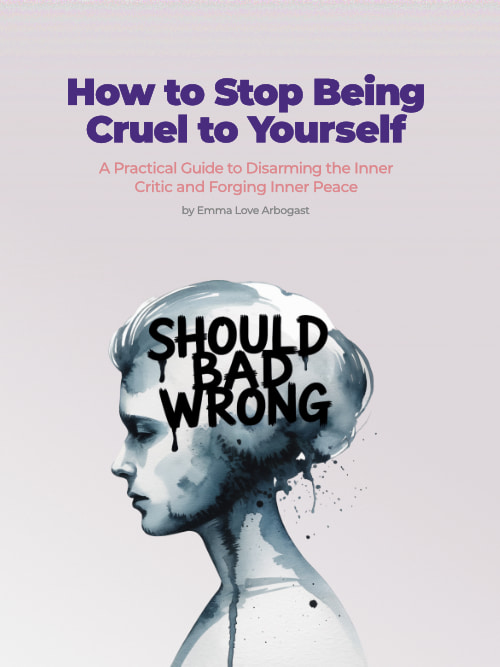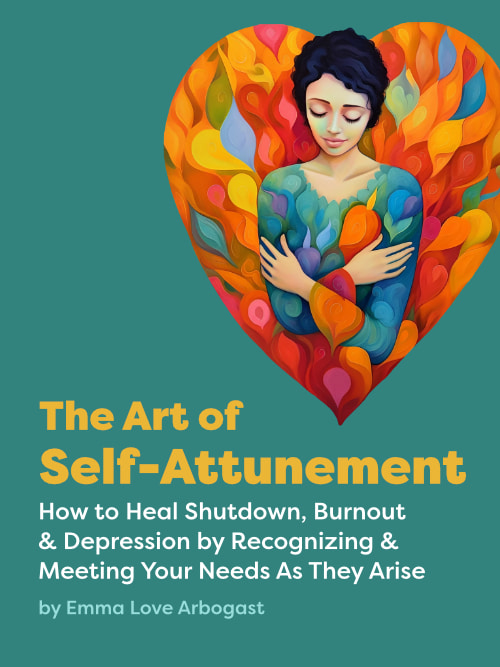How to Stop Feeling Regret
Regret is one of the hardest emotions we can feel, because it can feel like there is no way to address the underlying pain—after all, the past is over.
You may feel relief to know that regret is a secondary emotion, and by addressing the primary feelings, regret can be released. The primary emotion in this case is grief.
Grief occurs when something is lost that cannot be regained. In the case of regret, what has been lost is an opportunity. It may be an opportunity to love, to live, to excel—to have an experience that is no longer possible.
While regret can be very difficult to feel and process, it is a much bigger tragedy to not process it. Regret that is not processed will interfere with taking the opportunities that you actually still do have available to you.
Regret has a component of self-blame which keeps the grief stuck.
Regret is a mixture of grief and self-blame. While grief is difficult to feel by itself, it’s actually the self-blame which keeps us from fully feeling and releasing the pain of what we have lost.
The attraction of self-blame is the idea that if we blame ourselves, we will not repeat the same mistake. If we keep reminding ourselves of the pain we caused ourselves or others, and hold our own feet to the fire, maybe that will protect us from future pain.
This logic is present in all self-blame, and it is completely false.
What really happens is that self-blame shuts us off from the natural flow of feeling and letting go that lets us live in the moment. By repeatedly reviewing the past, you shut out the present and therefore lose any opportunity to repair damage, to change patterns, and to create new experiences that you want. By not working through regret and learning from it, we inevitably create more of it.
Forgiveness is a spiritual process of repair.
Self-blame can make forgiveness hard. The good news is that once you start to repair the situation, you will feel better about yourself and it will not be so hard to forgive yourself.
If you do not feel you are currently able to forgive and let go, then you must take action to repair any damage you regret causing. This includes damage to yourself.
Sometimes what we have done has hurt others, and to forgive ourselves we have to make amends first. So begin.
Identify what integrity means to you relative to this situation—how you believe you should act—and then start behaving in alignment with that. Be the person now that you wish you had been before.
You cannot change the past, but you can find something to do in the present that addresses the hurt you caused. You can learn what people need by asking them, and then you can meet those needs. You can contribute in ways that are meaningful.
Sometimes what we have done or not done has hurt only ourselves. This also requires amends. We need to honor our needs and our truth, and stop betraying ourselves. If your regret is related to your own inaction, then take action now.
Regret is a powerful teacher.
Sometimes spinning in self-blame becomes easier than changing. While it is painful, it can become familiar over time.
If you are not willing to change, then you are not learning the lesson that regret is here to teach you.
Regret is a powerful mirror. It teaches you that who you have been does not work for you. Let that knowledge motivate you to change.
There are three components to healing regret.
I find these don’t really go in order—it is an organic process.
Component 1: Feeling (without judgement or blame)
Things you can feel:
- Sadness
- Despair
- Anger
- Hurt
- Loneliness
- Longing
- anything else that comes up
Component 2: Acceptance
Things you can accept:
- Your own limitations.
- Others limitations.
- The limitations of time and space.
- That the past is irrevocably over.
- That you didn’t know better at the time.
- That change takes time and effort.
Component 3: Action/Repair
Things you can do (this depends a lot on what your regret is about):
- Call someone and apologize or reconnect.
- Create a new habit or pattern.
- Journal or get help to recognize your part in things.
- Speak (or write) about what happened.
- Make amends in some way.
- Start following new opportunities.
The biggest lie that regret will tell you is that there is nothing you can do about it.
Feelings are just indicators of needs, and regret is no different. It’s up to you to determine what your needs are and what action you can take to meet those needs—and then do it.
Self-love is a set of skills you can learn

Stop Being Cruel to Yourself
$2.99


Hey there! If you're new here, welcome to the Emmaverse! 🌈✨
About me: I'm autistic/ADHD and I write about how to be free and happy from the inside out.
Keep in touch?
Self-Liberation Society

